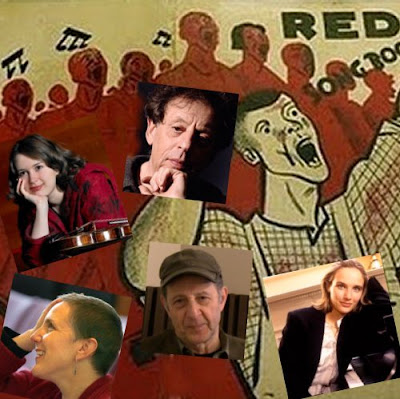Hoax that fooled music critics for 30 years
The front-page headline in the New York Times on 8 February 1935 rang down the curtain on one of the longest-running musical hoaxes in history. Years before most of his fellow violinists had rediscovered the pre-Classical repertoire, Fritz Kreisler (right) had been in the habit of featuring a group of short pieces by seventeenth and eighteenth-century composers in his recitals. Critics and even a few scholars duly applauded his modest contribution to the early music revival. Little did they suspect that more than a dozen of the pieces by sundry 'old masters' that Kreisler had popularized over the years had been penned by the great violinist himself.From Harry Haskell's excellent 1988 The Early Music Revival, A History, Dover Publications ISBN 0486291626. Now read more about music history rewritten
Why did Kreisler dissemble? He explained, unapologetically, that he had needed pieces to fill out his recitals as a young man and adopted various pseudonyms because he considered it "impudent and tactless to repeat my name endlessly on the programmes". Certainly he made only a half-hearted attempt to mask his fraudulent identities and readily pleaded when Olin Downes of the Times accidentally stumbled onto the secret. (Several of Kreisler's friends had apparantely been in on it for years.) But Kreisler was not above having a bit of fun at the expense of the experts, and he obviously relished thumbing his nose at the "snobs ... who judge merely by name and who draw upon musicians' lexicons for their enthusiasm for us".
Perhaps the most telling aspect of the Kreisler affair was that it was deemed newsworthy at all. When Fétis practiced what Weckerlin indulgently called his "innocent deceptions" almost a century earlier, no great hue and cry was raised in the musical world, let alone the popular press. Nor was Berlioz censured for facetiously passing off the Shepherds Chorus in L'Enfance du Christ as the work of a fictitious seventeenth-century composer. (One had to be "as ignorant as a fish", Berloz said, to believe the date he assigned to the piece.) Kreisler, like Berlioz, was both amused and aghast to find his bogus compositions accepted at face value by people who should have known better, especially in his frank admission that he "made no endeavour to stick closely to the style of the period to which they were alleged to date".
While most critics took Kreisler's prank in good part, Ernest Newman indignantly attacked the violinist's behaviour as unethical and likely to discredit bona fide arrangements of old music. The virulence of Newman's accusations caught Kreisler by surprise. On the contrary, he retorted, he had done the musical world a service, for 'who ever had heard a work by Pugnani, Cartier, Francoeur, Porpora, Louis Couperin, Padre Martini or Stamitz before I began to compose in their names? They lived exclusively as paragraphs in musical reference books, and their work, when existing and authenticated, lay mouldering in monasteries and old libraries'.
Any copyrighted material on these pages is included as "fair use", for the purpose of study, review or critical analysis only, and will be removed at the request of copyright owner(s). Report broken links, missing images and other errors to - overgrownpath at hotmail dot co dot uk










Comments
I finally put it all together: the poetry was by the author of the book. He just used an anagram.
I wasn't sure if it was humility, humor or fear that was revealing itself.
(I did wonder, though, how clever he thought he was being; surely most people would figure it out?)